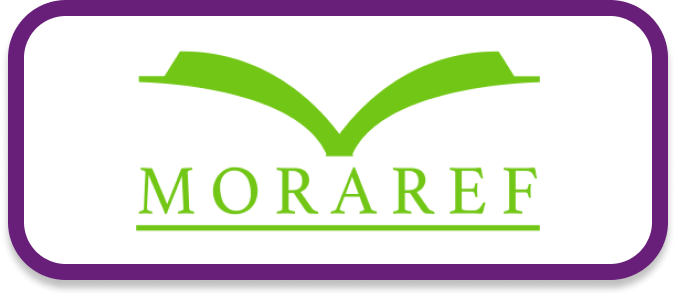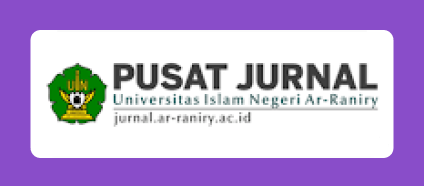THE INFLUENCE OF THE PROBLEM BASED LEARNING MODEL ON ELEMENTARY SCHOOL STUDENTS SCIENCE SELF-EFFICACY
Abstract
Keywords: Problem Based Learning, Science Self Efficacy, Elementary School Students
Keywords
Full Text:
PDFReferences
Adi Wahyuni, L., & Candra Sayekti, I. (2023). Analisis Kesulitan Belajar Siswa Pada Mata Pelajaran Ilmu Pengetahuan Alam Kelas IV Sekolah Dasar. Jurnal Inovasi Pendidikan dan Pembelajaran Sekolah Dasar , 7(2), 440–450. http://ejournal.unp.ac.id/index.php/jippsd/indexDOI:https://doi.org/10.24036/jippsd.v7i2440
Ali, S. S. (2019). Problem Based Learning: A Student-Centered Approach. English Language Teaching, 12(5), 73. https://doi.org/10.5539/elt.v12n5p73
Andriani, W., Witarsa, R., & Nurmalina. (2022). Analisis Faktor-Faktor yang Mempengaruhi Rendahnya Minat Belajar Sains Siswa Kelas V Sekolah Dasar Negeri 008 Langgini. 11(5), 1355–1367.
Azwar, S. (2016). Penyusunan Skala Psikologi (2 ed.). Pustaka Pelajar. https://onesearch.id/Record/IOS12573.slims-4627?widget=1#description
Carroll, S., McCauley, V., & Grenon, M. (2023). Science self-efficacy beliefs of upper primary students in Ireland. International Journal of Science Education, 1–21. https://doi.org/10.1080/09500693.2023.2245947
Carroll, S., Sheahan, J., McCauley, V., & Grenon, M. (2020). Development and validation of the Irish Science Self-Efficacy Children’s Questionnaire to assess the short-term influence of scientists facilitating outreach. In bioRxiv. https://doi.org/10.1101/2020.01.25.919357%0Ahttps://www.biorxiv.org/content/10.1101/2020.01.25.919357v1%0Ahttps://www.biorxiv.org/content/10.1101/2020.01.25.919357v1.abstract
Haerani, R. P. R., & Erna, S. (2022). Pelatihan Penyusunan RPP berbasis Science, Technology, Engineering, and Mathematics (STEM) di Masa Pandemi Covid-19. International Journal of Community Service Learning, 6(1), 10–19. https://doi.org/10.23887/ijcsl.v6i1.42560
Hasanah, N., Lubis, R. R., & Sari, B. P. (2020). Pengaruh Model Problem Based Learning Terhadap Kemampuan Pemecahan Masalah Siswa Sekolah Dasar. Jurnal Sintaksis: Pendidikan Guru Sekolah Dasar, IPA, IPS, dan Bahasa Inggris, 2(1), 272–277. https://doi.org/10.33487/edumaspul.v5i2.1687
Hendrizal. (2020). Rendahnya Motivasi Belajar Siswa Dalam. Jurnal Riset, 2(1), 44–53.
Hotimah, H. (2020). Penerapan Metode Pembelajaran Problem Based Learning Dalam Meningkatkan Kemampuan Bercerita Pada Siswa Sekolah Dasar. Jurnal Edukasi, 7(3), 5. https://doi.org/10.19184/jukasi.v7i3.21599
Kemendikbudristek. (2023). Laporan Pisa Kemendikbudristek. Pemulihan Pembelajaran Indonesia, 1–25.
Lianto, L. (2019). Self-Efficacy: A Brief Literature Review. Jurnal Manajemen Motivasi, 15(2), 55. https://doi.org/10.29406/jmm.v15i2.1409
Magdalena, I., Nurchayati, A., Suhirman, D. P., & Fathya, N. N. (2023). Implementasi Teori Pengembangan Kognitif Jean Piaget dalam Pembelajaran IPA di Sekolah Dasar. Anwarul, 3(5), 960–969. https://doi.org/10.58578/anwarul.v3i5.1431
Marinda, L. (2020). Kognitif dan Problematika. An-Nisa’ : Jurnal Kajian Perempuan dan Keislaman, 13(1), 116–152.
Mariskhantari, M., Karma, I. N., & Nisa, K. (2022). Pengaruh Model Pembelajaran Problem Based Learning (PBL) terhadap Kemampuan Berpikir Kritis Siswa Pada Pembelajaran IPA Kelas IV SDN 1 Beleka Tahun 2021/2022. Jurnal Ilmiah Profesi Pendidikan, 7(2b), 710–716. https://doi.org/10.29303/jipp.v7i2b.613
Mufidah, E. F., Pravesti, C. A., Ardika, D., & Farid, M. (2022). Urgensi Efikasi Diri: Tinjauan Teori Bandura. Prosiding Seminar & Lokakarya Nasional Bimbingan dan Konseling, 30–35.
Nani, D. (2019). Penerapan Model Pembelajaran Problem-Based Learning (PBL) Untuk Meningkatkan Self Efficacy Matematika Dan Hasil Belajar Matematika Siswa Kelas VII 2 SMP Muhammadiyah 2 Pekanbaru. https://repository.uir.ac.id/7467/
Nursa’ban, E., & Ewisahrani, E. (2021). Pengaruh Model Pembelajaran Discovery Learning dan Self Efficacy Terhadap Keterampilan Literasi Sains. JISIP (Jurnal Ilmu Sosial dan Pendidikan), 5(4). https://doi.org/10.58258/jisip.v5i4.2611
OECD. (2023). Kerangka Sains PISA 2025. https://pisa-framework.oecd.org/science-2025/idn_ind/
OECD Library. (2018). Hasil PISA 2018 BAB 13: Efikasi Diri dan Ketakutan Siswa akan Kegagalan. 3. https://www.oecd-ilibrary.org/sites/2f9d3124-en/index.html?itemId=/content/component/2f9d3124-en
Parikesit, A. A. (2020). Kecemasan Terhadap Mata Ajar Ilmu Pengetahuan Alam (Ipa) Pada Siswa Sekolah Dasar Dan Menengah. Manajemen Pendidikan, 14(2), 82–90. https://doi.org/10.23917/jmp.v14i2.4387
Pratiwi, S., Abdussalam, Hariyani, Y., & Firmansyah, I. (2023). Pengaruh Model Problem Based Learning (PBL) Terhadap Kemampuan Pemecahan Masalah dan Kerja Sama Siswa. Jurnal Ilmiah Pendidikan Dasar, 08(03), 163–174.
Rifly, A. F. (2023). Pengaruh Lingkungan Belajar di Sekolah Dasar. Pendidikan Guru Sekolah Dasar, 4(2), 318–324.
Santi, N. N., & Khan, R. I. (2019). Pengaruh Dukungan Teman Sebaya Terhadap Motivasi Belajar Siswa Kelas III Sekolah Dasar. Jurnal Pendidikan Dasar Nusantara, 4(2), 191. https://doi.org/10.29407/jpdn.v4i2.13013
Sugiyono, D. (2017). Metode Penelitian Kuantitatif Kualitatif dan R&D. In Penerbit Alfabeta.
Suhartini, E., & Haerani, R. P. R. (2024). Environmental Literacy Profile of Primary Teacher Candidates in Tropical Rainforests Environment Context. AIP Conference Proceedings. https://doi.org/https://doi.org/10.1063/5.0134012
Suryaningsih, A., & Koeswanti, H. (2021). Perbedaan Model Pembelajaran Problem Based Learning dan Project Based Learning Terhadap Peningkatan Kemampuan Berfikir Kritis IPA Siswa SD. MIMBAR PGSD Undiksha, 9(1), 40. https://doi.org/10.23887/jjpgsd.v9i1.33196
Susilowati, A. (2018). Pengaruh PBL terhadap Kemandirian Belajar Siswa SD. Indonesian Journal of Primary Education, 2(1), 72. https://doi.org/10.17509/ijpe.v2i1.9392
Thorndahl, K. L., & Stentoft, D. (2020). Thinking critically about critical thinking and prob-lem-based learning in higher education: A scoping review. Interdisciplinary Journal of Problem-based Learning, 14(1), 1–21. https://doi.org/10.14434/ijpbl.v14i1.28773
Wahiddah, S. A. N., & Julia, J. (2022). Afirmasi positif : Booster untuk meminimalisir hambatan belajar pada siswa sekolah dasar. Jurnal Penelitian Ilmu Pendidikan, 15(2), 189–199. http://dx.doi.org/10.21831/jpipfip.v15i2.50910
DOI: http://dx.doi.org/10.22373/pjp.v14i1.26041
Refbacks
- There are currently no refbacks.
Copyright (c) 2025 Ihdina Sinta Pruistine, Erna Suhartini, Rosita Putri Rahmi Haerani

This work is licensed under a Creative Commons Attribution-ShareAlike 4.0 International License.

























